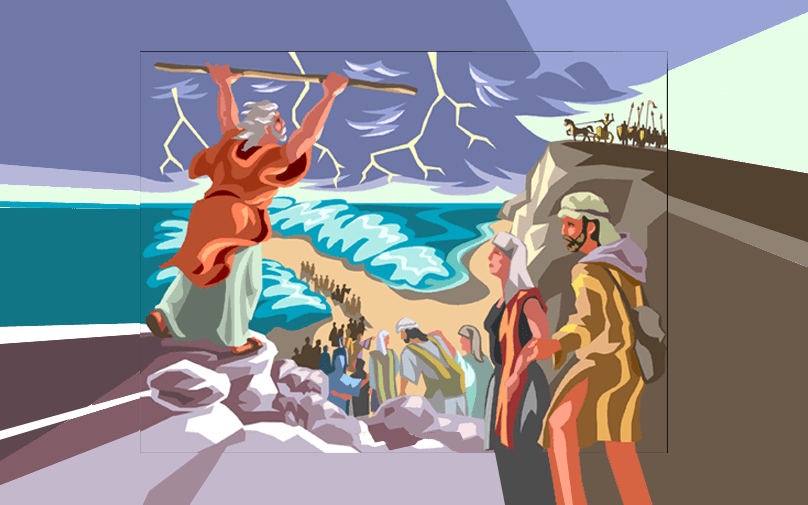Parashat Beshalach

Parashat Beshalach is the sixteenth weekly portion in the Torah and the fourth in the Book of Exodus (13:17-17:16). It plays a pivotal role, bridging the gap between the Israelites’ departure from Egypt and their arrival at Mt. Sinai.
In the first section (13:17-14:31), we find the dénouement of the conflict with Pharaoh. Moses is told to lead the people to Yam Suf, the Sea of Reeds (the precise location is a matter of some debate among scholars); this means backtracking, but it is necessary to set up the final confrontation with the Egyptians. Indeed, Pharaoh’s reaction to the news is striking: we are told that his heart turns, a new term. This change of heart may be better understand if we note what Moses’ initial request in Egypt actually is: “Let my people go… three days’ journey into the desert” (5:1-3). Pharaoh thinks the Hebrews are coming back, and when they fail to do so, he amasses his armies to pursue them.
Why would God send Moses and Aaron to ask for a three-day pass to worship Him in the desert? This underscores the nature of the test; God asks a comparatively small thing of Pharaoh, a respite for a religious festival, but even this is too much for the King of Egypt. It takes Ten Plagues for him to agree to three days of freedom; to agree to permanent emancipation, what would it take? Apparently, the splitting of the Sea of Reeds is not enough to make Pharaoh’s army reconsider; as the Jewish people miraculously cross, the Egyptian cavalry pursues them — and the waters rush back to the seabed, silencing Pharaoh and his forces forever.
The next section is the Song of the Sea (15:1-21), a triumphant poem which Jews recite daily to this very day. Moses sings, but his sister Miriam the Prophetess does him one better, adding musical instruments and dance to the epic lyrics.
The final section (15:22-17:16) describes the journey from the Sea of Reeds to Sinai. After the highs of their first week of freedom, the Israelites struggle with the practicalities of travel, particularly finding water (twice) and food. God provides them the manna, bread from Heaven — a gift, but also a test of faith. Indeed, the last verses of the portion find the Israelites facing battle once again, against the Amalekites. They eventually prevail, yet the message is clear: as a free people, God will watch over them, but they must fight their own battles.
The portion from the Prophets is the story of Deborah from the fourth and fifth chapters of the Book of Judges. Just as a triumvirate of heroes — Moses, Aaron and Miriam — lead the Israelites to miraculous salvation from the Egyptians and sing an epic song, another triumvirate of heroes — the prophetess and judge Deborah, the general Barak and the femme fatale Jael — lead the Israelites to miraculous salvation from the Canaanites and sing an epic song of their own.

